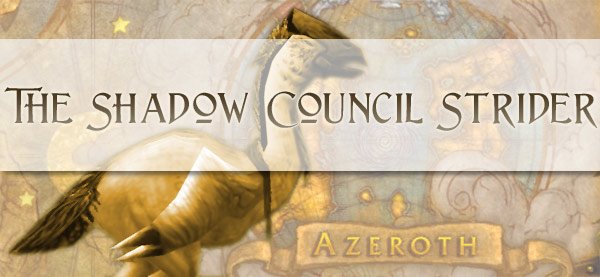His voice is deep. It resonates lowly. Decisive consonants are articulated from the lips and tongue in a strong, focused way—the kind of focus you expect from someone with an unbreakable will. The British vowels, masculine and noble, demand loyalty of the listener. It is sometimes ruthless. It is a voice undoubtedly familiar with power…
That is the voice of actor Justin Gross, as recorded for the hero-turned-villain Arthas in the video game “Warcraft III.”
In the 2002 video game “Warcraft III: Reign of Chaos,” the character Prince Arthas is faced with protecting his father’s land against impossible odds. In searching for the power to protect his kingdom, he betrays his own people to obtain an evil sword called Frostmourne.
The actor said if he were ever in Arthas’s shoes, he might have taken Frostmourne too.
“Under those circumstances?” he said. “I think everybody has the propensity for evil in them—for doing evil things in certain situations.”
It was that attitude that let Gross get into character for Arthas.
“I guess everyone’s got a little capacity for evil in them,” he said.
The actor recorded all Arthas’s dialogue in Warcraft III line by line. Typically for video game voice work, he said, an actor will not be given a script. Instead, actors are given lines one at a time. A director talks him through the context of each particular line and he has no interaction with the other voice actors in the scene.
For that reason, Gross said he usually prefers to work on TV episodes, where the actor is given a full script and interacts with the other voice actors in the scene.
TV episodes also pay a residual fee each time the episode is aired, so one episode’s recording session has the opportunity to pay off with each episode rerun.
Despite his TV preference, he enjoyed working with Blizzard on Warcraft III, where he got voice direction from World of Warcraft music composer Jason Hayes.
“He was really good to work with,” Gross said in a telephone interview last August. “Everyone at Blizzard was very professional.”
“Crives,” a Shadow Council player who played Warcraft III, said he thought Gross’s voice was particularly memorable as Arthas transformed from a good paladin to an evil death knight.
“I really caught his emotions well as he was becoming a death knight,” Crives said in an in-game interview Friday.
The player said he was disappointed Gross would not be continuing to work with Blizzard for the World of Warcraft expansion “Wrath of the Lich King.”
Gross has been doing voice work since 1992, and his verbal styles vary extensively from the dark, commanding Arthas to the more youthful, friendly Captain America in the show “Ultimate Avengers.” He has voiced commercials for Pepsi, Nokia, and Saturn, to name a few brands. He has also narrated documentaries.
Speaking on his cell phone from his home in Houston, Texas, the voice actor sounded like a regular guy. He did not have a languid Texan drawl—because he is actually from northern California. He graduated from Nevada Union High School in 1990, and then decided he wanted to teach.
Gross taught at the now-closed Placer Hills Elementary School in Meadow Vista, Calif. for half a year. He was filling in for a teacher on maternity leave. After a few months there, he knew teaching was not his preferred career.
“It was a dreary experience, and I just realized it wasn’t what I wanted to do,” he said.
He began acting onstage at Sacramento’s B Street Theater. While there, he worked with stage and voice actress Elisabeth Nunziato, who he says was his inspiration for becoming a voice-over actor.
“I really admired her lifestyle. She didn’t have a regular job,” Gross said.
After hearing Nunziato’s voice on the radio, Gross decided voice acting would be something worth trying out. He asked Nunziato to coach him, and she agreed.
They made a demo tape together that landed him several jobs. Gross moved to L.A., where he said he was doing auditions for voice work every day.
Today, Gross lives in Houston, Texas, where he is working on some real estate property he bought in partnership with his brother. He still does some voice work each week, though he is not as busy as he once was in L.A. Moving to Texas, he said, let him take a break.
The actor hopes to move back to L.A. next year to concentrate again on his voice acting.
“Voice acting has been very good for me,” he said. It gives him the freedom to do something a little different each day.
The Strider's Lacey Waymire can be reached at shc.strider@gmail.com.



 Jason Coleman has recorded auction house values for both Horde and Alliance since April 2007. He has monitored many of the raw trade goods (common ores and cloth) that are constantly on the auction houses, employing them as an indicator of market health. Taking averages from his data, each material has been given a value of 100 points (or percent) and is analyzed based on deviation from this value. Continuing each week, the Shadow Council Strider will post his analyses in this article, the Gold Record.
Jason Coleman has recorded auction house values for both Horde and Alliance since April 2007. He has monitored many of the raw trade goods (common ores and cloth) that are constantly on the auction houses, employing them as an indicator of market health. Taking averages from his data, each material has been given a value of 100 points (or percent) and is analyzed based on deviation from this value. Continuing each week, the Shadow Council Strider will post his analyses in this article, the Gold Record.